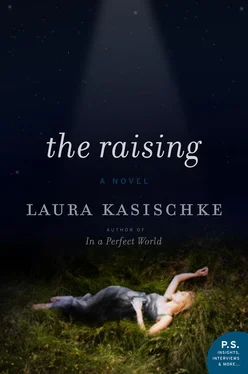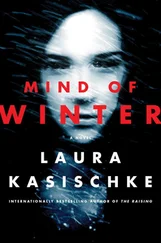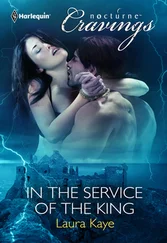He’d seen her before, he realized.
He’d seen her everywhere , he thought.
Again, she shook her head.
Beside him, Professor Polson was shivering. Perry’s friend Karess had been shivering all along, as well. Perry looked cold, too. He had his hands shoved deep into the pockets of his jeans. But Craig felt, himself, like he was burning up. Maybe he was sick. He’d slept so solidly (twelve hours?) in the Cookie Girl Deb’s bed, and still he felt sure that if he put his head down now for one second, he would fall straight back into that exhausted, dreamless state. If she hadn’t woken him up to let him back into the apartment with the key the landlord had dropped off, Craig might still be there in her bed.
He might never have woken up at all.
Shelly Lockes looked flushed, too, he thought. Overwarm. A thin film of perspiration shone on her forehead, although she was wearing only a silky-looking dress, black tights, boots that looked more like fashion stuff than winter stuff. She was staring at him intently, as though either trying to read his mind or willing him to read hers
“You were there,” he asked, “the night of the accident? You saw Nicole? The night she died?”
The woman looked around as if the question had been asked of someone else in the room, but everyone in the room was looking at her. She cleared her throat and then touched it, and then tucked a strand of hair behind her ear, and looked down at her boots.
How many millions of times had Craig seen Nicole tuck a strand of hair like that behind her ears, thinking before she spoke? This woman could have been Nicole, if Nicole had lived long enough to become her. Or Josie. Or any of the other sorority girls Craig had seen or known.
She licked her lips, and then bit them, and then she said, “She wasn’t dead.”
Shelly had begun to think that perhaps in the months since the accident she had reinvented the boy in her imagination. There’d been only that one night, and it had been dark except for the moon. Afterward, photographs of Nicole Werner had been everywhere, so she’d had an image of the girl to compare to her memory. But Craig Clements-Rabbitt had appeared again only in her dreams.
Now, looking at him sitting across from her on the low, sagging couch—his knees practically pressed against his chest—Shelly realized she would have recognized him anywhere.
The dark, shaggy hair. The pained expression she felt certain he’d spent all his adolescence attempting to turn into a rock star sneer. She’d known boys like him in high school, in college, and since. They were the ones who managed to turn into poets, or elementary school art teachers, if someone finally helped them shrug off that persona. If not, they just passed through this world with that sneer, drinking far too much, fucking things up.
The night of the accident, he’d looked at her and understood; she’d never doubted that. He couldn’t have heard her, but he’d known what she was saying. He was looking at her that same way now, and Shelly felt sure, again, that something was rising up in him: memory, understanding.
Now, she understood, too:
He really didn’t remember what had happened. That’s why he’d never contacted anyone to set the record straight himself. Amnesia, she thought. Confabulation. Fugue. So many pretty words for forgetting, like names for gray flowers. Still, she felt sure that if she looked at him long enough, as deeply into his eyes as she could, he would see past her, and remember that night. Remember her. Finally, he seemed to, and said, “You were there.”
“Yes,” she said. “I was there. I was there, and it’s not what they said happened.”
He nodded. He understood. It was coming back to him, wasn’t it? She was coming back to him.
“You were there,” he said again. “You know what happened?”
Shelly nodded. “I was the first one there,” she said again.
“What happened?” the boy asked.
Shelly felt a small sob start in her throat, and touched it. It was warm in the apartment, though everyone except Craig Clements-Rabbitt looked cold. The girl by the radiator was shivering, and the professor was blowing on her own hands, seeming to be trying to warm them up—but Shelly was either having another one of her hot flashes, or she had a fever, or it was a hundred degrees in here. She was sweating through her silk dress. She could feel that her feet were wet from the snow and slush she’d walked through to get here, but they weren’t cold. She was thirsty. As if she’d walked through the desert as well as the snow. But none of that mattered. Finally, finally , she had this little gathered group of listeners to whom she could tell the story, and she was going to tell it. She cleared her throat and began at the beginning:
The tail lights on the two-lane road. How she’d been singing along to the radio, watching them up ahead in the distance, and how they’d disappeared.
The couple in the moonlight, and how she’d seen them from the other side of the ditch of cold water. She told Craig that she’d known she had to tell him not to move the girl, but that she was never sure whether or not she’d actually said the words. He’d been so far away, but—
“I heard you,” he said.
She nodded.
But then he shook his head and said, “But Nicole was in the backseat. It would have been burning.”
“No,” Shelly said. “That’s not what happened. She was thrown from the car. There was no fire. I called nine-one-one. I waded through the ditch, and I was right there. You had your arms around her. There was no blood. She was hurt; she’d been thrown. But you said her name, and she opened her eyes. She was going to be fine. I stayed until the ambulance came, and they told me I needed to get stitches for my hand.”
Shelly held it up so he could see the scar. The professor leaned forward, too. She had hair as black and shining as Josie’s, and a sharp, serious expression. She looked troubled, and very smart.
“So I left. I went to the university outpatient clinic when the ambulance left with you and Nicole. There was never any blood. There was never any fire. You never left the scene except with them. They don’t want us to remember. They want us off this campus. They have something to hide.”
“I told you,” Craig said, looking over at his roommate. “The postcards. You convinced me, especially after they quit coming, that they weren’t from her, that it was a hoax.”
“You got postcards from Nicole Werner ?” the girl by the window asked. She let her mouth hang open, looking at each of them in the room in turn.
“The Cookie Girl,” Craig said. “She told me, too.”
No one said anything until the girl near the radiator closed her mouth and then sputtered, as if she’d been listening so long to such a ludicrous story that she couldn’t contain herself any longer, “Who’s the Cookie Girl ?”
“Our neighbor,” Craig’s roommate said.
Craig said, “She told me that, too. She said, ‘They’re trying to get rid of you. They don’t want you here.’ She told me there isn’t a ghost.”
He went silent then. Shelly waited for him to go on.
“Alice Meyers,” he finally said. “I thought there was this girl. This dead girl. She calls. One night, she came here, into the apartment. She stood in the doorway and asked if she could come in.”
The girl near the radiator huffed loudly this time, and swept a small, cold-looking hand through her tangled dark hair. “That’s a bunch of crap,” she said. “I live in the dorm. There’s these ‘Alice Meyers girls.’ They’re crazies. Cutters. They’re obsessed with Nicole. They go around saying they’ve seen her—”
Читать дальше












